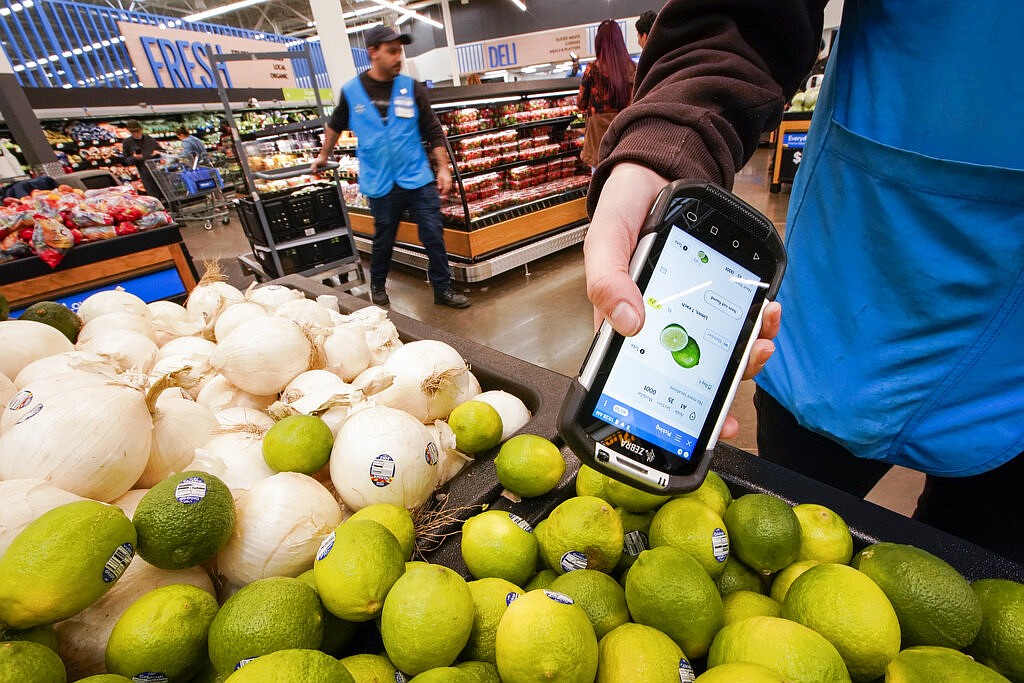Copyright Arkansas Online

Since the start of the month, Leah Richardson of Harrison, a single mom of four boys, a full-time nursing student and part-time nurse hasn't received her SNAP benefits because the federal government shutdown. And Richardson isn't alone. According to a study by a federal government watchdog, approximately 13% of the state's SNAP recipients were employed full- or part-time by employers like Walmart and Tyson Foods in 2020. Now, without benefits, working SNAP recipients like Richardson are left with few options, which health and labor experts warn could push these recipients into poverty and infringe on childhood development. "I've been praying a lot, because it's terrifying ... it's scary," Richardson said, adding that her monthly SNAP money is "vital." The Supplemental Nutrition Assistance Program, widely known as SNAP, provides money for food to low-income Americans, including about 240,000 Arkansans, or about 7.8% of the state's population. It is operated by the U.S. Department of Agriculture. The average monthly benefit is usually about $190 per person. But the program has been held up by the federal government shutdown. The Trump administration said Monday that it would release enough money to pay for a half-month of SNAP benefits in November, tapping an Agriculture Department contingency fund, according to a report from the Associated Press. On Friday, two federal judges ordered SNAP benefits to be paid from the department's contingency fund, but confusion continued over the issue Tuesday. It's not clear how much beneficiaries will receive or how quickly it will be disbursed and the process of loading the SNAP cards, which involves steps by state and federal government agencies and vendors, can take up to two weeks in some states, according to the Associated Press report. Approximately 13% of working-age Arkansans in households that receive SNAP benefits are employed full-time, according to a 2020 report from the federal Government Accountability Office. The report, which was first covered by the Washington Post, looked at the top 25 employers in each state that employed the most SNAP and Medicaid recipients. Only nine states responded to the office's inquiries, one of which was Arkansas. In February 2020, 310,000 Arkansans received SNAP benefits, about 22% more than the number of recipients in 2025. Of those, about 44,000 were working adults and 42,000 were working for an employer, according to the report. The five companies with the largest share of SNAP recipient households on their payrolls in Arkansas were Walmart, McDonald's, Dollar General, Sonic and Tyson Foods. Roughly 7,100 people were employed by those 25 companies, or about 2% of the state's SNAP recipients in 2020. Walmart was in the top five employers in every state that responded to the office's survey. The retailer did not respond to a request for comment. Bianca Agustin and Terrysa Guerra, co-executive directors of United for Respect, a Walmart employee advocacy group, stressed the importance of the benefits in an emailed statement. "The loss of SNAP benefits is devastating for millions of working families, including the very people who keep companies like Walmart running," they said. "Many Walmart associates and other retail workers rely on SNAP to feed their children while working full-time jobs that do not pay enough to cover basic needs." North Arkansas Regional Medical Center, Richardson's employer, did not respond to a request for comment. Baptist Health ranked 19th on that list. The Government Accountability Office reported that 0.3% of the health system's employees received SNAP assistance in 2020. Cara Wade, a spokeswoman for the healthcare provider, said in a statement that the hospital system offers a variety of assistance programs for its employees such as an emergency fund, which provides financial assistance to those facing unexpected emergencies beyond their control and they have regular drives that include food support. Wade said Baptist "maintains a regular food pantry to assist employees needing food support." She also said these programs have been into effect prior to SNAP benefits not being funded. Kristin Mmari, a professor at Johns Hopkins University in Baltimore who specializes in adolescent health research said that the withholding of SNAP benefits will have "ripple effects" for recipients, particularly working-age households that make up the bulk of the program, according to government data. "SNAP has been found to reduce food insecurity for adolescents, we know that food insecurity is related to so many different health outcomes," she said. "Food insecurity is related to educational outcomes. It's related to chronic diseases. It's related to mental health." Without the SNAP benefits, Richardson said she's going to have to change the way she shops to ensure that her four children, some who play football, are getting the nutrients they need. "I'll have to change the way I'm shopping ... the boys might want pizza one night, but I know in the back of my mind that's not going to fill them," Richardson said. "Just trying to make a dollar stretch." SNAP eligibility and benefits are primarily based on a household's income and other resources, like savings and assets. Generally, to be SNAP-eligible, a household's gross income cannot exceed 13% of the federal poverty level, according to a the 2020 report. SNAP recipient households must comply with work requirements, including registering for work or participating in work programs from the state. The program's work requirements are largely managed by the states. Richardson, 37, said she works at least 24 hours per week on top of her full-time course load to become a registered nurse. Enrique Lopezlira, a labor economist and director of the low-wage work program at the U.C. Berkeley Labor Center, said full- or part-time workers in households receiving SNAP will now have to rely on local food banks. She said SNAP is a useful tool to keep families from falling into poverty. There are approximately 20 food pantries within 90 miles of Little Rock, according to the Arkansas Food Bank. "The catch-22 is that I when I am working or in school, those food pantries hours are those hours. So when I do need to start utilizing them ... I'm either in work or in school," she said. Gov. Sarah Huckabee Sanders announced Friday that the state will provide a combined $500,000 to six food bank networks. If the shutdown continues past next week, the governor said, she "will consider additional, weekly allocations." In the meantime, working SNAP recipients like Richardson will have to get creative. "I've lived on nothing before. I can be resourceful," she said. "As far as being able to keep food in the house, I'm just kind of having to go day-to-day." Information for this report was provided by Serenah McKay of the Arkansas Democrat-Gazette. Lucas Dufalla is a Report for America Corps member. Financial support for this coverage came from the Community Journalism Project.



